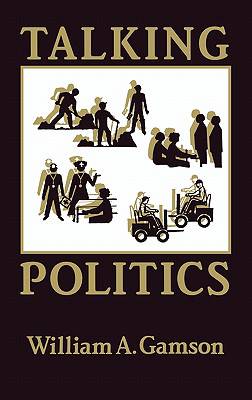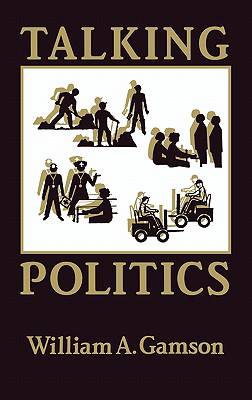
- Afhalen na 1 uur in een winkel met voorraad
- Gratis thuislevering in België vanaf € 30
- Ruim aanbod met 7 miljoen producten
- Afhalen na 1 uur in een winkel met voorraad
- Gratis thuislevering in België vanaf € 30
- Ruim aanbod met 7 miljoen producten
Zoeken
Omschrijving
Those who analyze public opinion have long contended that the average citizen is incapable of recounting consistently even the most rudimentary facts about current politics; that the little the average person does know is taken at face value from the media reports, and that the consequence is a polity that is ill-prepared for democratic governance. Yet social movements, comprised by and large of average citizens who have become exercised about particular issues, have been a prominent feature of the American political scene throughout American history and they are experiencing a resurgence in recent years. William Gamson asks the question, how is it that so many people become active in movements if people are so generally uninterested and badly informed about issues? The conclusion he reaches in this book is a striking refutation of the common wisdom about the public's ability to reason about politics. Rather than relying on survey data, as so many studies of public opinion do, Gamson reports on his analysis of discussions among small groups of working-class people on four controversial issues: affirmative action, nuclear power, the Arab-Israeli conflict, and the troubles in American industry. Excerpts from many of these discussions are transcribed in the book. Gamson analyzes how these same issues have been treated in a range of media material, from editorial opinion columns to political cartoons and network news programs, in order to determine how closely the group discussions mimic media discourse. He finds that the process of opinion formation is more complex than it has usually been depicted and that people condition media information with reflection on their own experience or that of people they know. The discussions transcribed in this book demonstrate that people are quite capable of conducting informed and well-reasoned discussions about issues and that although most people are not inclined to become actively involved in politics, the seeds of political action are present in the minds of many. With the appropriate stimulation, this latent political consciousness can be activated, which accounts for the continual creation of social movements.
Specificaties
Betrokkenen
- Auteur(s):
- Uitgeverij:
Inhoud
- Aantal bladzijden:
- 290
- Taal:
- Engels
Eigenschappen
- Productcode (EAN):
- 9780521430623
- Verschijningsdatum:
- 28/08/1992
- Uitvoering:
- Hardcover
- Formaat:
- Genaaid
- Afmetingen:
- 152 mm x 229 mm
- Gewicht:
- 594 g

Alleen bij Standaard Boekhandel
+ 216 punten op je klantenkaart van Standaard Boekhandel
Beoordelingen
We publiceren alleen reviews die voldoen aan de voorwaarden voor reviews. Bekijk onze voorwaarden voor reviews.











